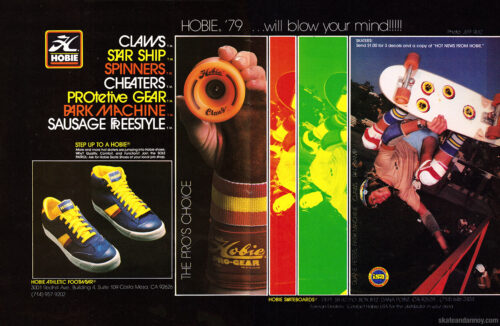Lexicon Devil: The Fast Times and Short Life of Darby Crash and the Germs
Brendan Mullen with Don Bolles and Adam Parfrey
Publisher: Feral House
Copyright: April 15, 2002
Paperback: 312 pages
Lexicon Devil is another book in the now crowded oral history genre of books chronicling music. Published in 2002, (7 years befpre Brendan Mullen’s death) the project combines and builds on two separate attempts to chronicle the Germs that were originally started by Don Bolles and Adam Parfrey. Lexicon Devil focuses on Darby for the most part, with the rest of the Germs definitely taking a back seat. The activities of Germs contemporaries are also covered to some extent, even when they don’t directly relate to the Germs, but not to the point of trying to cover the entire Hollywood/LA scene. In fact, there’s a disclaimer pointing to “We Got the Neutron Bomb” (Three Rivers Press) as the go-to source for a more complete perspective.
First and foremost, Lexicon Devil goes a long way towards humanizing Paul Beham, AKA Darby Crash. As rife as the stories are about his manipulative high intelligence and the cult of Darby Crash, it paints a clearer picture of a scared, insecure individual. Lexicon Devil doesn’t do a good job of supporting the theory of Darby as genius with any sort of tangible evidence, but it does seem to be a popular opinion held by those who knew him. Basically, the book demystifies Darby Crash the human being without quite identifying how it is that he came have such a sway over people, because the descriptions of his actions and words don’t add up the sum total of his lasting reverence. So, it’s still a bit of a mystery if you weren’t there to witness it firsthand.
The quality and quantity of those who contributed to the stories is pretty high for the most part, with exception of quite few short interjections that seem either irrelevant, out of context or so inane that they add absolutely nothing to the history. You might end up scratching your head trying to figure out if there was some hidden importance. There are times when off the cuff Germs interviews from fanzines are included, and they are of such poor quality that they only reinforce the idea of Darby as annoying, vapid, or petty. Granted, the interviewers at the time were likely teenagers, and the questions weren’t very well thought out, but including them in the book really serves no purpose, except to maybe remind the reader how youth can sometimes be so inarticulate.
Editorial shortcomings aside, it’s still a good read and likely the only place to go if you really are interested in the history of the Germs and Darby Crash. Even if you aren’t a huge Germs fan it’s still fascinating at times, especially the glimpse of how Californian hippie culture could have gone so horribly wrong. It makes sense of a movie like Suburbia (Penelope Spheeris version) and the Manson family, and creates a mental image where both of those seem like plausible, even inevitable realities. That’s a lot to lay on a book where people are mostly just remembering their glory years, but the story of the culture surrounding the inception of the Germs is ultimately more interesting the Germs themselves.










